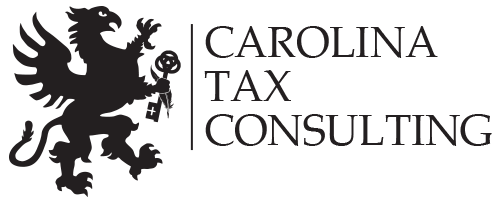Charitable Contributions and Taxes: What You Need to Know

Charitable donations do more than just help people in need—they can also reduce your tax burden. If you're in Fort Mill and want to maximize the tax benefits of giving, it’s helpful to know the basics. Let's look at what you need to understand to make sure your donations are effective, both for the causes you care about and for your tax return.
1. How Do Charitable Contributions Affect Your Taxes?
When you make donations to qualified organizations, you can often deduct them from your taxable income. This lowers your overall tax bill, meaning you’ll pay taxes on a smaller amount of income. However, you have to itemize your deductions to claim this benefit. This means listing out each deduction rather than taking the standard deduction.
For some, itemizing makes sense if they have enough deductions (like mortgage interest, medical expenses, or charitable contributions) to exceed the standard deduction. If not, it might be better to take the standard deduction instead. A Fort Mill tax consulting firm can help you understand which option is best for you.
2. What Types of Contributions Can You Deduct?
Not all contributions are created equal when it comes to taxes. Here’s a quick guide to what’s deductible:
- Cash Donations: This includes checks, credit card payments, or digital payments. These are the most straightforward donations to track and deduct.
- Goods and Property: Non-cash contributions like clothing, furniture, or electronics can also be deducted. However, these must be in good condition, and you’ll need to document their fair market value.
- Stocks or Securities: Donating appreciated assets, like stocks, can bring extra benefits. Not only can you deduct the fair market value, but you may also avoid paying capital gains tax on any appreciation.
Keep in mind that contributions to individuals, political groups, and some private organizations are not tax-deductible.
3. How Much Can You Deduct?
The IRS has specific limits on the amount you can deduct. Generally:
- Cash Donations: You can deduct cash contributions up to 60% of your adjusted gross income (AGI) each year. Anything over this amount can be carried over and deducted in future years, usually for up to five years.
- Non-Cash Donations: The limit for property donations is generally 30% of your AGI.
These limits apply to contributions made to most public charities. Private foundations may have different limits, so it’s essential to double-check before making a donation.
4. Documentation You’ll Need
To claim deductions, you must keep detailed records of your donations. Here’s a breakdown:
- For Cash Donations Under $250: Keep a bank record, canceled check, or receipt from the organization.
- For Cash Donations of $250 or More: You’ll need a written acknowledgment from the charity, stating the amount and if any goods or services were provided in return.
- For Non-Cash Donations Over $500: Fill out IRS Form 8283 and have the charity acknowledge the donation. If the value exceeds $5,000, you’ll also need a qualified appraisal.
Good record-keeping is critical. If you're unsure of what to keep, reach out to a tax consultant company in Fort Mill, SC, for guidance.
5. When Should You Consider Bunching Donations?
One tax strategy you might consider is “bunching” your charitable donations. Bunching is when you make two or more years’ worth of donations in a single year to maximize your deductions. This strategy can be helpful if your deductions won’t exceed the standard amount every year. By bunching, you can itemize one year, and then take the standard deduction the next.
6. Watch Out for Scams
Unfortunately, not all charities are legitimate. Before donating, research the charity to make sure it’s qualified and that your donation will be tax-deductible. Check for the charity’s EIN (Employer Identification Number), which should be listed on their website or IRS.gov. This ensures your hard-earned money goes where it can do the most good and can also help protect you from audit risks.
Wrapping Up
Making charitable donations is a fantastic way to give back to the community while also getting some tax relief. However, the rules can be complex, and it’s easy to miss out on potential savings or deductions. Reach out to a tax consultant company Fort Mill SC, they can help you navigate these rules effectively and ensure you’re maximizing your tax benefits.
If you’re looking for expert advice on your charitable contributions, don’t hesitate to learn more about how local tax professionals can help. They can ensure your donations have the greatest possible impact on both your community and your tax return.
Ready to work with Carolina Tax Consulting, LLC?
Let's connect! We’re here to help.
Send us a message and we’ll be in touch.
Or give us a call today at 803-410-5885
Agency Contact Form
We will get back to you as soon as possible
Please try again later
More Marketing Tips, Tricks & Tools

All Rights Reserved Carolina Tax Consulting, LLC | 302 Tom Hall Street, Suite 2 Fort Mill, SC 29715 (803) 410-5885
Website Managed by Leads By Vinny | Policy & Terms










